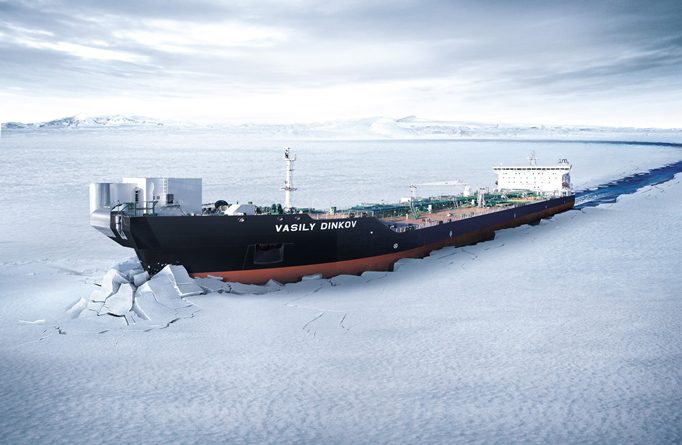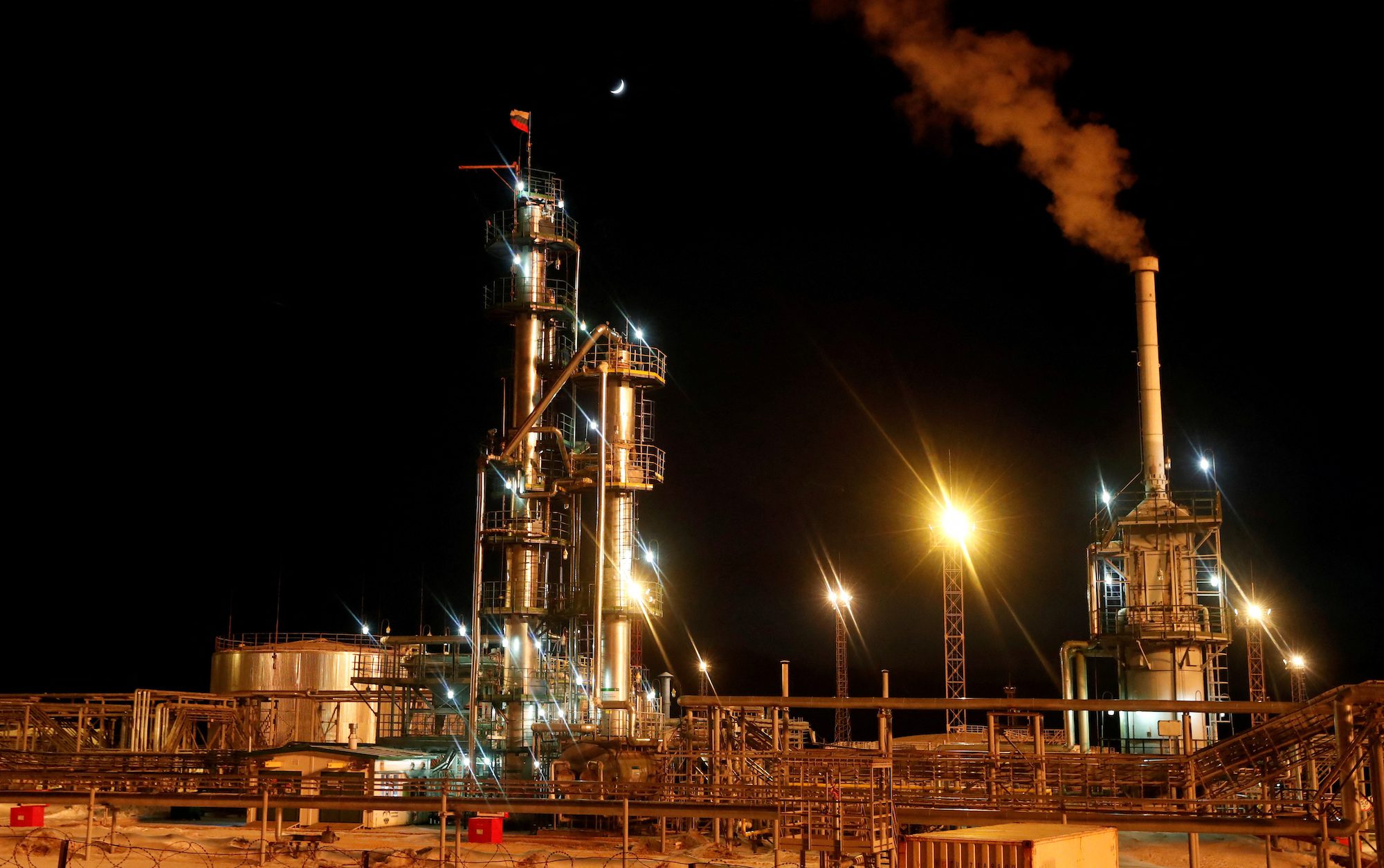Samsung Heavy said on Tuesday it had won a $444 million order to build three tankers for an unnamed firm based in Europe and that it expected to complete the contract by April 2017. File photo (c) SHI
 MOSCOW, Oct 10 (Reuters) – South Korean shipbuilder Samsung Heavy Industries plans to build three Arctic tankers for Russian oil company Gazprom Neft, which has been targeted by Western sanctions, sources familiar with the deal said.
MOSCOW, Oct 10 (Reuters) – South Korean shipbuilder Samsung Heavy Industries plans to build three Arctic tankers for Russian oil company Gazprom Neft, which has been targeted by Western sanctions, sources familiar with the deal said.
The sanctions imposed on Moscow over its role in the crisis in Ukraine have complicated Russian companies’ oil exploration and production in deep water, Arctic offshore or shale projects, as they use Western technology.
Samsung Heavy said on Tuesday it had won a 472 billion Korean won ($444 million) order to build three tankers for an unnamed firm based in Europe and that it expected to complete the contract by April 2017.
The tankers will be bought by Gazprom Neft’s Austria-based subsidiary Gazprom Neft Trading, one of the sources told Reuters.
“The purchaser is a trading subsidiary of Gazprom Neft based in Vienna,” he said. Two other sources said that tankers were to be supplied for Gazprom Neft’s subsidiary.
Although the help from the South Korean company would facilitate development of the oilfield, it indicates Russia is struggling to comply with an appeal by President Vladimir Putin to reduce reliance on imported technology.
Gazprom Neft, the oil-producing arm of Russian state gas company Gazprom, and Samsung Heavy Industries declined to comment.
The sources did not identify the future operator of the tankers or give details of the financing. The sanctions also restrict some Russian companies’ access to Western finance.
Tankers are needed for supplies from Gazprom Neft’s Novoportovskoye field, located in Russia’s Arctic.
The Novoportovskoye field has recoverable reserves of more than 250 million tonnes of oil and gas condensate and 320 billion cubic meters of gas.
Gazprom Neft has said it plans annual light oil production at the field of 5-8 million tonnes by 2020 with a maximum possible output of 13 million tonnes per year. (Reporting by Gleb Stolyarov, Denis Pinchuk and Gleb Gorodyankin in Moscow; Additional reporting by Joyce Lee in Seoul; Writing by Polina Devitt and Vladimir Soldatkin; Editing by Timothy Heritage and David Evans)
© 2014 Thomson Reuters. All rights reserved.

 Join The Club
Join The Club











